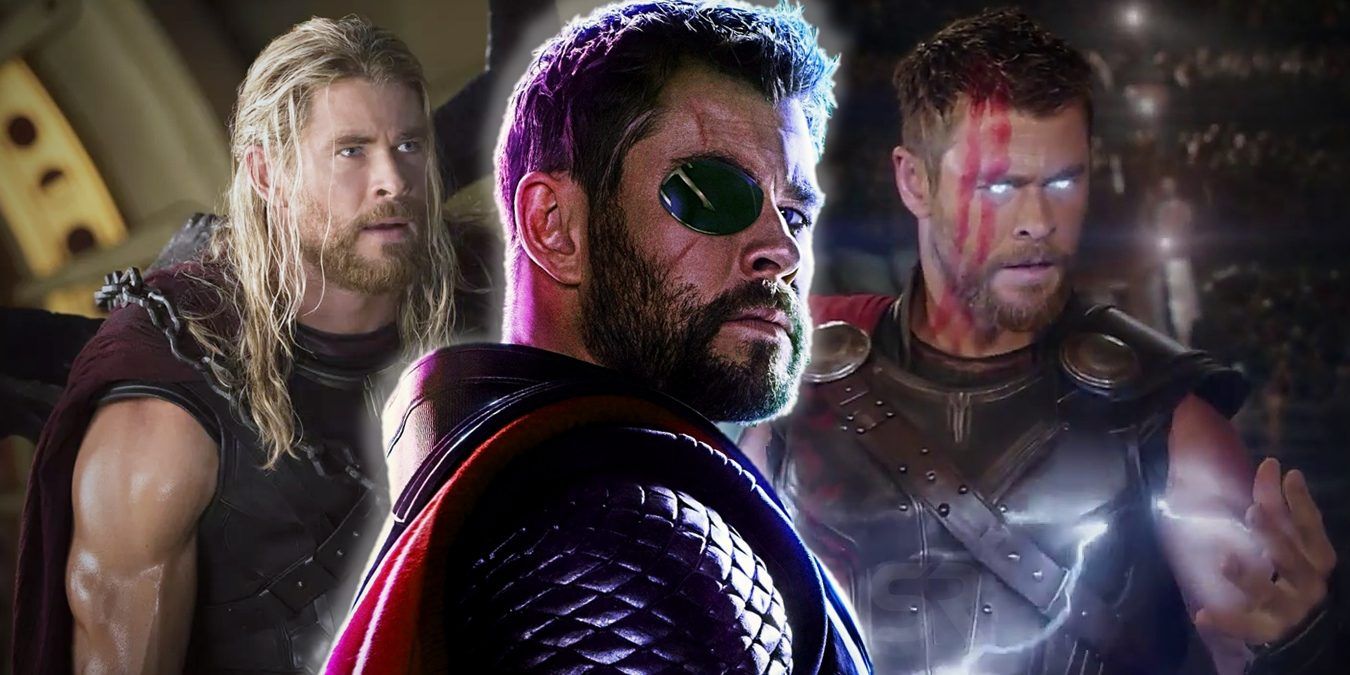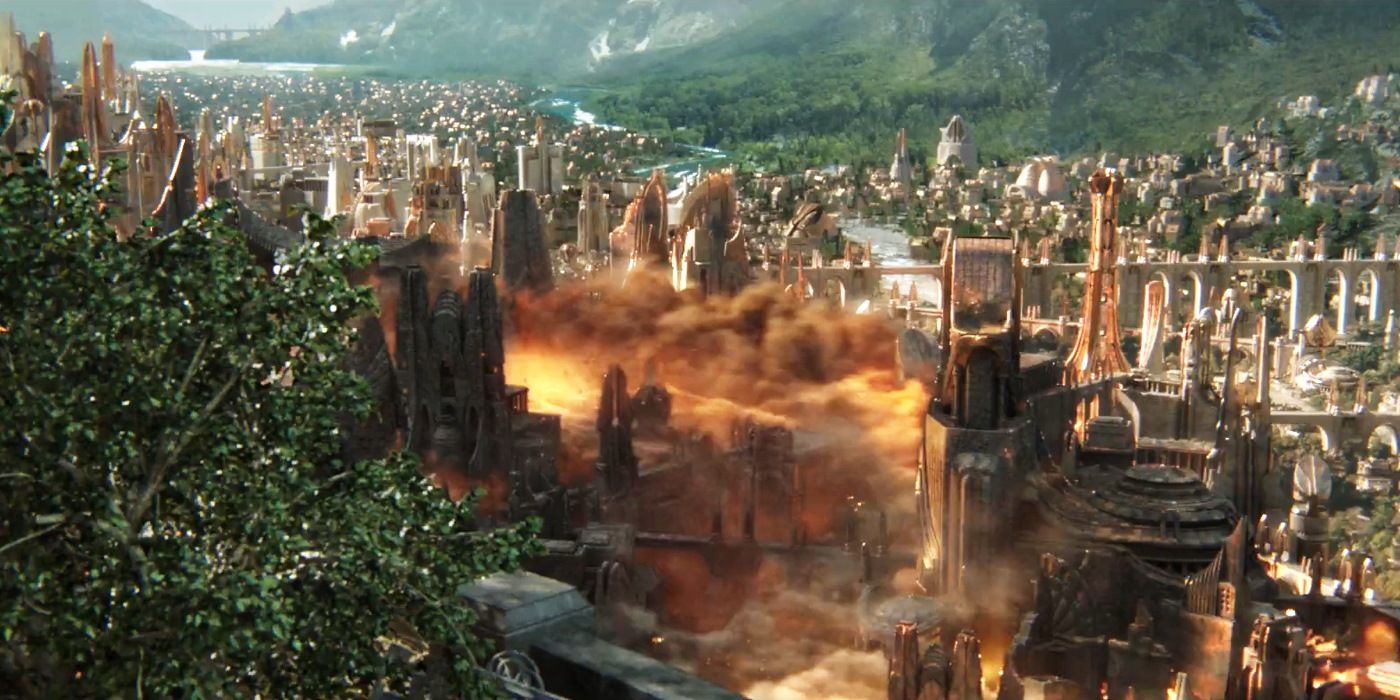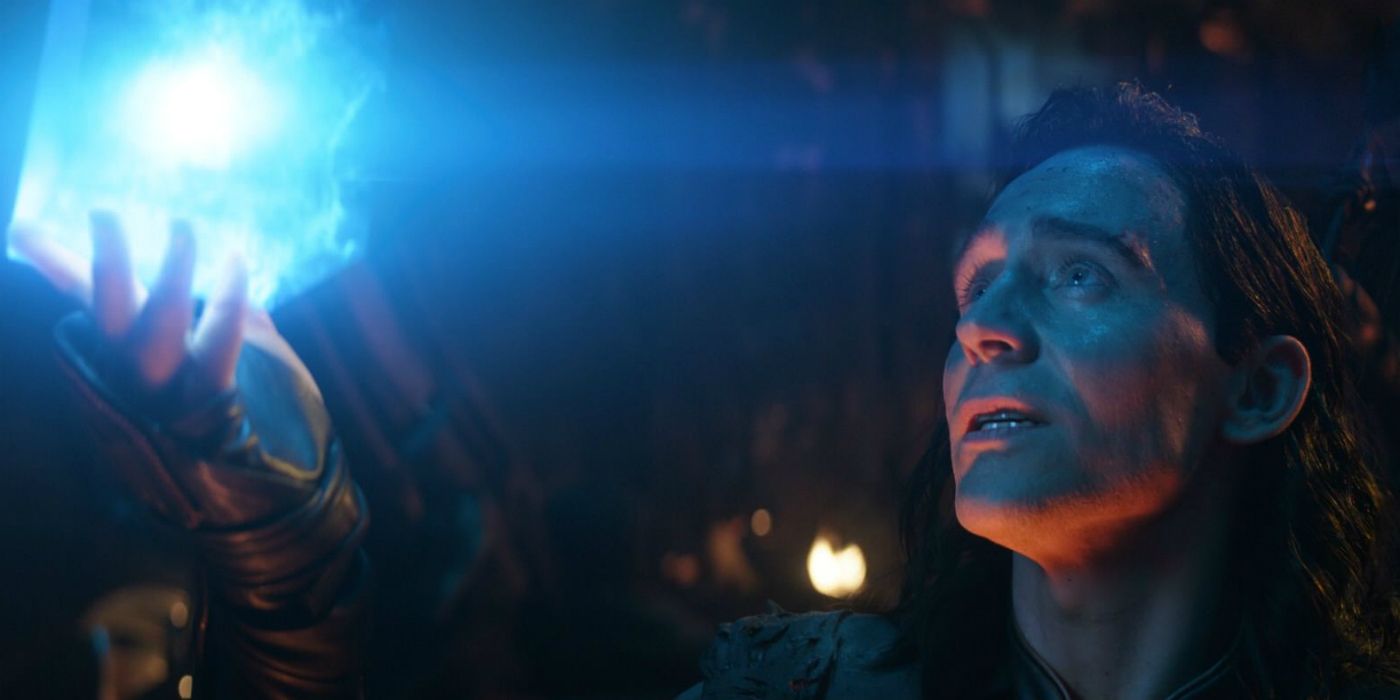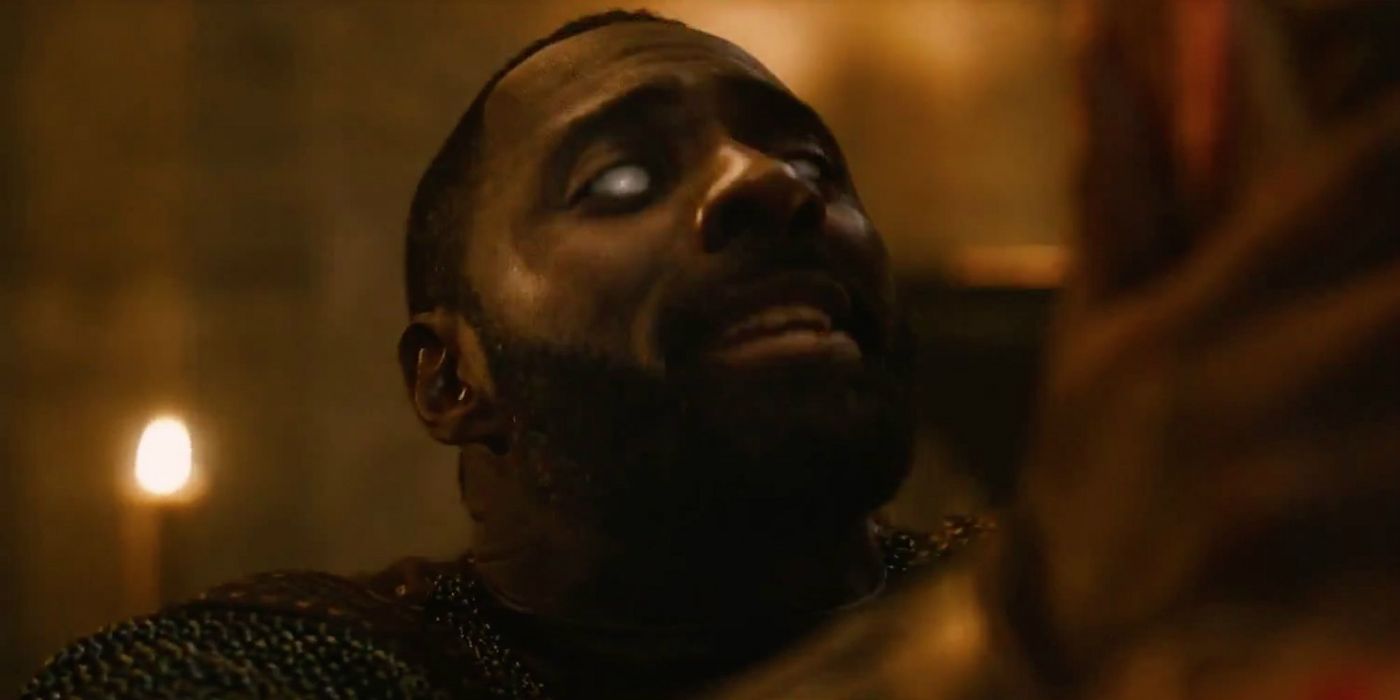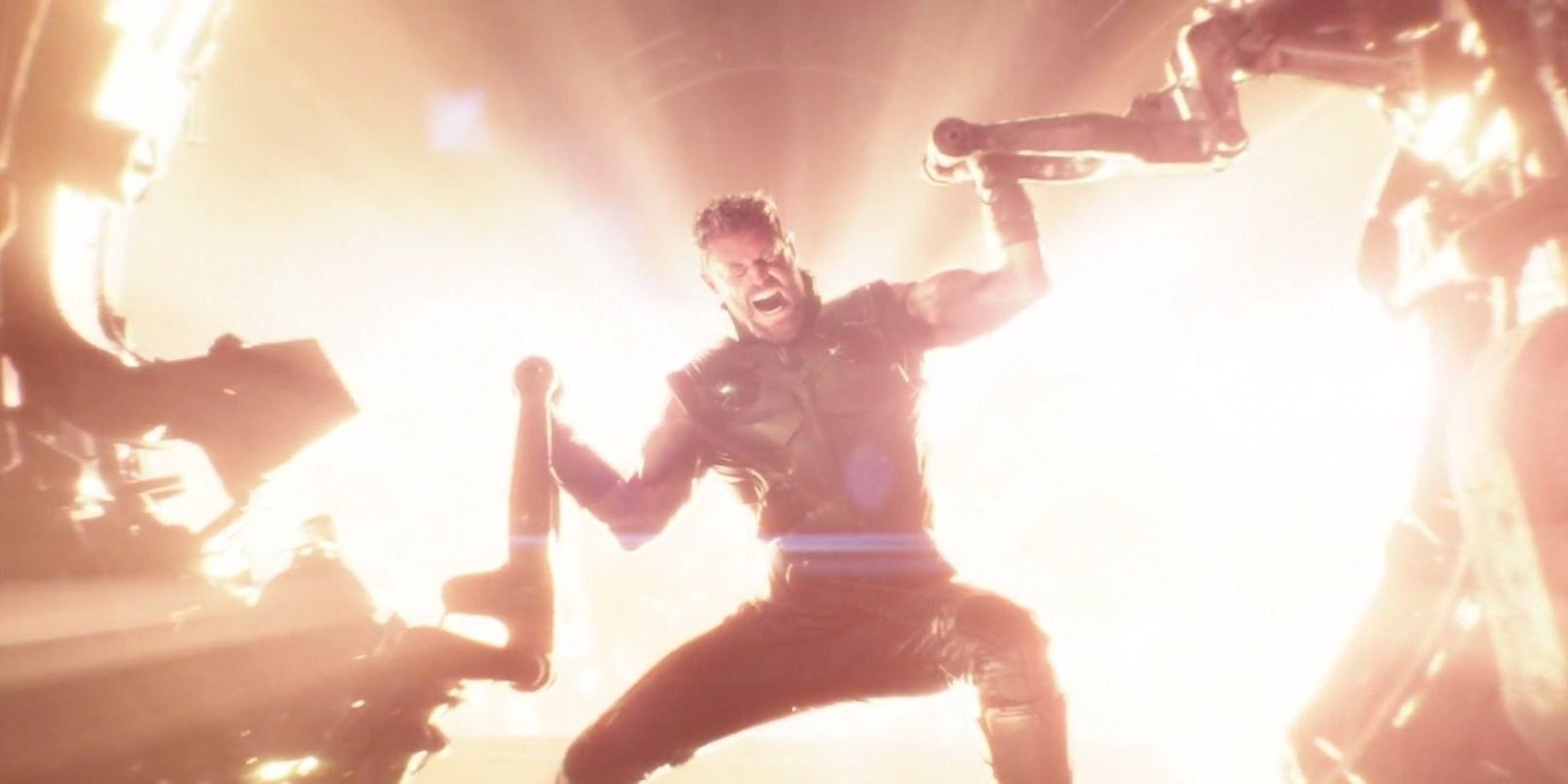Thor: Ragnarok may well have been the beginning of a brand new Thor trilogy, one that runs through Avengers: Infinity War and concludes in next year's Avengers 4. Marvel has always stressed that these three films have a close relationship with one another; in fact, they've even described them as different chapters in a single three-part arc for the Hulk. Could the same principle be true for Thor?
Taika Waititi's Thor: Ragnarok effectively relaunched the Thor franchise, setting aside everything that had gone before. Major secondary characters were either dropped (sometimes off-camera) or killed off at speed; a brand new supporting cast was introduced in their place. The God of Thunder was forced to reinvent himself, learning that he didn't need to wield Mjolnir in order to summon "the biggest lightning blast in the history of lightning." By the end of the film, audiences had gotten a new MCU Thor.
Related: Why Thor: Ragnarok Was A Divisive MCU Film
At first glance, it seems strange to relaunch the franchise when Chris Hemsworth is expected to bow out after next year's Avengers 4. But one Redditor, Danish Royalty, has come up with the perfect explanation. He suggests that, just as with the Hulk, Marvel has started a three-film arc for the God of Thunder - one that truly fulfills the meaning of Norse mythology's Ragnarok. And it really makes sense considering what Thor is going through in the final Avengers movies.
- This Page: Norse Mythology's Ragnarok & How Thor 3 Only Started It
- Page 2: Avengers 4 Continues the Story of Ragnarok
Norse Mythology's Ragnarok and How Thor 3 Compares
In Norse mythology, Ragnarok is the prophesied Twilight of the Gods. It's a vision of a cosmic catastrophe, the end of all things that is in part brought about by Loki's treachery. The gods themselves will perish during the events of Ragnarok; Odin, Tyr, Heimdall, Freyr, Loki, and even Thor himself are destined to die. The monstrous wolf Fenrir will be freed from his chains, the great serpent Jormungand will rise from the oceans, and the fire giant Surtur will destroy Immortal Asgard itself. As horrific as all these events may be, though, it's important to stress that the Norse legends envisioned Ragnarok as a beginning as well as an ending; the Norse believed that time runs in cycle, and that Ragnarok will be the end of one cycle and the beginning of the next.
A lot of the details of Thor: Ragnarok do indeed align with the Norse mythology. Just as in the legends, the proximate cause of Ragnarok is actually Loki's treachery; had he not banished and replaced Odin, then the All-Father may not have perished on Earth, and Hela may not have been freed. Fenris, the giant wolf, is indeed a key player in the film. Finally, at the end of Thor: Ragnarok the Odinson is forced to unleash Surtur to destroy the Realm Eternal. And yet, there are subtle differences; Loki winds up fighting alongside his brother, for example, rather than continuing to act as one of the key agents of Ragnarok. While Odin and the Warriors Three die, others gods who are prophesied to perish in Ragnarok live on - most notably Thor himself. It's as though Ragnarok has begun, but is not yet complete.
How Ragnarok Started Thor's New Trilogy
This brings us neatly to one crucial point; for Thor and his supporting characters, Avengers: Infinity War is the continuation of Ragnarok. Loki's continued treachery - in this case, the fact he secretly possesses the Space Stone - draws the wrath of Thanos. Although half the Asgardians are allowed to flee, the remainder are slaughtered. Notable deaths include Heimdall and even Loki himself, both gods prophesied to die as part of Ragnarok. If Asgard is a people and not a place, then this was just as terrible a blow to Asgard as the loss of the Realm Eternal. Meanwhile, there's also evidence that Marvel considered making this connection explicit. Concept art for Avengers: Infinity War has confirmed that, in one draft, Thor's quest to Nidavellir brought him into battle against Jormungand, the Midgard Serpent, a creature that lies at the heart of the Ragnarok myth.
Related: Avengers 4: Thor Movies Connect Quantum Realm To The Soul Stone
But the end of Avengers: Infinity War makes matters even worse. Thor has spent the bulk of the film attempting to acquire a weapon that will allow him to kill Thanos. Stormbreaker is powerful enough to resist even the might of the Infinity Stones, and Thor unleashes it against Thanos in what should have been a death-blow. But, crucially, the God of Thunder makes a mistake. He wants to savor the moment, and so strikes Thanos in the chest rather than the head, so the Mad Titan can know just who has killed him. And Thor inadvertently gives Thanos the chance to snap his fingers. Half the life in the universe was instantly extinguished. That presumably includes half of the Asgardians who survived Thanos's initial attack. For those refugees, the snap would be a moment of pure horror, as their numbers further diminished. The Twilight of the Gods would continue.
Page 2 of 2: Avengers 4 Continues the Story of Ragnarok
Where Does The Story Go After Avengers: Infinity War?
It's important to understand that, by the end of Avengers: Infinity War, the Asgardian race is on the verge of extinction. Only a few hundred at most escaped Asgard's destruction in Thor: Ragnarok; you need a certain number of living beings in order to reproduce while preserving genetic diversity. The Asgardians had probably passed that point when Thanos destroyed the refugee ship, but the snap will have made things far worse. While Asgardians are long-lived, so will stick around for quite a while yet, their apparent extinction is inevitable.
That means the stakes are higher for Thor than for any of the other Avengers. It's generally believed that Earth's Mightiest Heroes will use time-travel to attempt to rewrite history and prevent the snap ever happening; but that won't be enough for Thor. The Odinson will most likely have to go to far more dramatic lengths if he wants to create a future for Asgard.
Related: How Avengers 4 Can Resolve Age of Ultron's Dreams
Avengers: Age of Ultron may have offered an important clue. In that film, Scarlet Witch cast visions into the minds of the Avengers. Although it's far from confirmed, many fans believe these visions will somehow be fulfilled in Avengers 4. Significantly, Thor sees Hel, the realm of the dead, filled with the souls of Asgardians. He's even confronted by a sightless Heimdall, who tells Thor he is the one who led Asgard to ruin. "We are all dead," Heimdall snarls. "Can you not see?" Is it possible that, in fulfillment of this vision, Thor will actually journey into the underworld? That idea would have seemed foolish a few years ago, but the last few years have seen the MCU embrace magic and mythology to a previously unprecedented extent. Perhaps Thor will travel into the underworld in order to liberate the Asgardians from the chains of death. This is purely speculative, of course, but it's not beyond the realms of possibility.
How Avengers 4 Can End Thor's Final Story
Whatever the truth may be, if Thor does indeed resurrect the Asgardian race, then he should be seen as the servant of the Ragnarok cycle. After all, Ragnarok is the end of one cycle - signified by the deaths - and the beginning of the next. But here's the catch: there must be a cost... and it must be Thor's life. After all, in the legends, Thor's death is itself an important part of the cycle. A sacrificial death for Thor would be the perfect fulfillment of everything the franchise has been building up to since 2011. The Thor franchise has really focused on one simple question: what is it to be worthy? Its answer, time and again, has been that a worthy hero, a worthy champion, and even a worthy king, is one who is willing to sacrifice themselves for others.
If this theory is accurate, it's uncertain how this death will play out. It's possible that Thor will die in battle with Thanos, attempting to complete what he began in Avengers: Infinity War and kill the Mad Titan Thanos. It's also possible that, somehow, Thor's death will be the catalyst for his people's resurrections; that would be so very appropriate. At this stage, though, it's difficult to say for certain.
-
"The sun will shine on us again, brother," Loki told Thor before his death in Avengers: Infinity War. If this theory is correct, then Loki's words were a prophesy; an expression of belief in the cycle of Ragnarok. Loki, at least, had intuited that Ragnarok was not yet complete, that Thanos' attack was all part of it, and that these deaths would ultimately lead to a resurrection.

